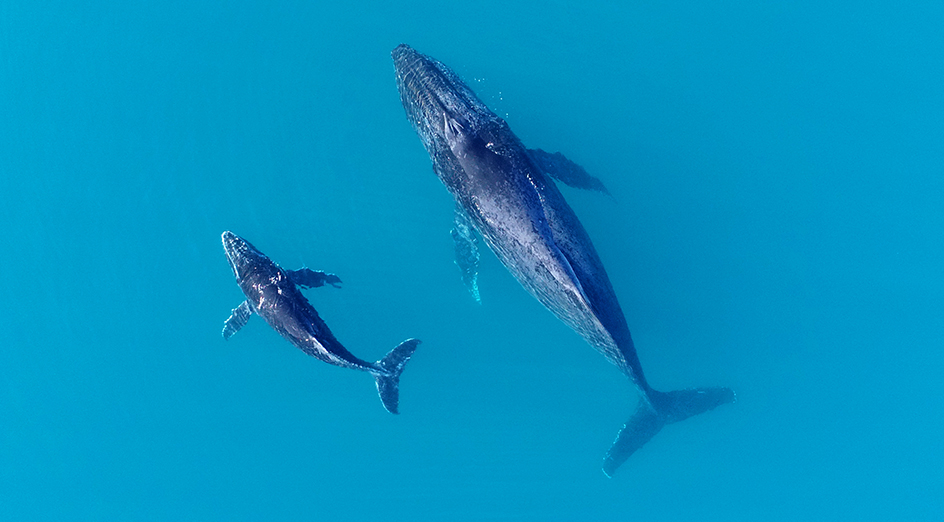The 2022 merger of Australian water specialist Hunter H2O and New Zealand-headquartered professional services firm Beca is proving a dynamic trans-Tasman combination. It is one that demonstrates the unique opportunities for businesses in the region.
‘It’s been incredibly successful – a strong New Zealand-headquartered business joining forces with a strong Australian water specialist business,’ says Peter Dennis, General Manager of Water for the merged entity, Beca HunterH2O.
‘It creates the largest specialist water team in the ANZ market, which then creates a strong foundation to support the Pacific. It’s a case of one plus one equals three.’
Two companies with a similar vision
Hunter H2O began life as Hunter Water Australia in 1998. It provided water services for the Newcastle and Lower Hunter regions of New South Wales. Over the past 25 years, it has expanded into regional and metropolitan areas across Australia. It has also developed export markets in New Zealand and throughout the Pacific.
‘Our services all focus on water,’ says Dennis, who was Managing Director of Hunter H2O before the merger. ‘Whether it’s drinking water, recycled water or sewage treatment, we are very sustainability focused.’
Beca’s history stretches back to 1920 when it began as a small Auckland engineering practice. It is now New Zealand’s largest international professional services business. Beca delivers infrastructure, utilities, transport, industrial and building projects around the world. The company has a strong presence in Victoria, Australia, where it has built the multibillion-dollar Wonthaggi desalination plant. It also serves all 4 Melbourne metro water utilities.
Each company had established a firm foothold on both sides of the Tasman prior to the merger. However, there’s been little overlap of work along the way.
‘Geographically, it’s a great fit,’ says Dennis. ‘There’s also a real alignment of cultures. This creates a more resilient business across the Australian and New Zealand markets.’
Australia-New Zealand agreements offer unique benefits
Hunter H2O began working in New Zealand almost 20 years ago as a specialist advisor on drinking water–treatment projects. More recently, it was appointed engineering lead on one of Auckland’s major drought initiatives. The company expanded into the Pacific – primarily New Guinea, Fiji, Samoa, the Solomon Islands and Tonga – about 10 years ago. Today these New Zealand and Pacific export markets are roughly 15% of the company’s business.
The Australia-New Zealand Closer Economic Relations Trade Agreement (CER Agreement) and the Trans-Tasman Travel Arrangement have both helped to smooth the company’s export pathway. This year marks the 50th anniversary of the Travel Arrangement. It is also the 40th anniversary of CER – one of the most unique and comprehensive bilateral free trade agreements in the world. The CER covers almost all trans-Tasman trade in goods and services.
Dennis says these agreements benefit Australian and New Zealand companies wanting to work together.
‘In setting that broader context, these agreements have been important,’ he says. ‘For Hunter H2O and Beca, we’re today a truly integrated business from a water perspective across Australia and New Zealand. That creates a strong platform to support our neighbours in the Pacific. They need the skill sets we bring around water engineering and a more resilient and sustainable water supply.’
Austrade provides guidance in a complex landscape
Austrade has played a significant role in Hunter H2O’s expansion journey into New Zealand and the Pacific. ‘Austrade has been a really valuable strategic partner for us,’ says Dennis. ‘They’ve supported us, opened doors, set up meetings and given us advice on how to approach things.’
That guidance has been instrumental in helping Hunter H2O navigate the cultural and business landscapes in the region, as well as improve local stakeholder engagement.
‘In the Pacific, in particular, there’s a common view that it’s a connected place,’ says Dennis. ‘It’s actually an intricate web of different cultures. If you don’t get that cultural respect in place, then it’s difficult to add value through the engineering.’
Austrade has also worked with Hunter H2O on developing strategies to address some of the key challenges facing Pacific communities around sustainable and resilient water supplies. ‘Austrade has been with us every step of the way,’ says Dennis. ‘We really value the relationship, both in New Zealand and the Pacific.’
Hunter H2O has also been working with Australia’s Department of Foreign Affairs and Trade through the Australian Water Partnership. This initiative includes the Young Water Professionals program, which is helping to train young people in the Pacific region.
‘We’ve connected young water professionals from across the Pacific,’ says Dennis. ‘We’ve trained them in a range of areas around modern water utilities. These include governance and technical skills and procurement and risk – and built their toolbox to become water utility professionals. It’s a great example of supporting our neighbours in the Pacific.’
Lessons learned on the export journey
Dennis says it pays to be patient when contemplating expansion across the region. It took nearly a decade for Hunter H2O to establish its reputation and invest in local stakeholders.
‘Sometimes things don’t move as fast as you’d like,’ he says. ‘It’s about having that long-term focus about what you’re trying to achieve. It’s about investing in partnerships and building the foundation and trust. It’s also about understanding the culture and giving back. That’s where relationships with Austrade are so useful.’
The joint forces of Beca and Hunter H2O will now see more than 380 water specialists combining their mutual strengths and embracing further opportunities. This includes supporting the successful transition of New Zealand’s current water reform processes, which aim to create 10 new water entities over the next decade.
‘It’s a huge piece of work that will require a lot of good planners and engineers,’ says Dennis. ‘It’s all about positioning to serve the key challenges around managing water … we’re looking forward to the journey ahead.’
Go further, faster with Austrade
Go to Austrade’s to learn the basics, find the right markets and understand market requirements.







